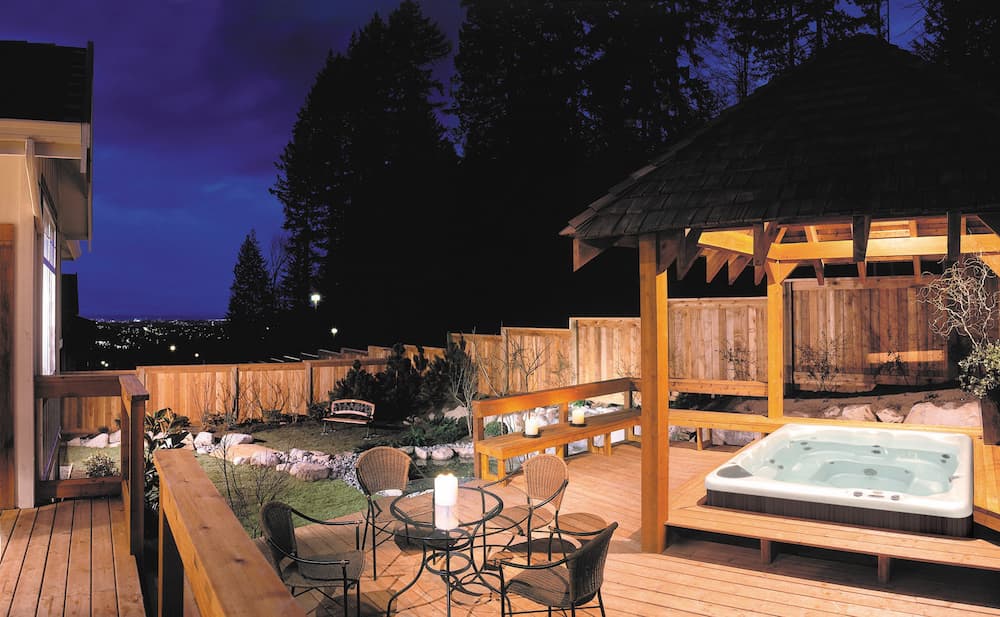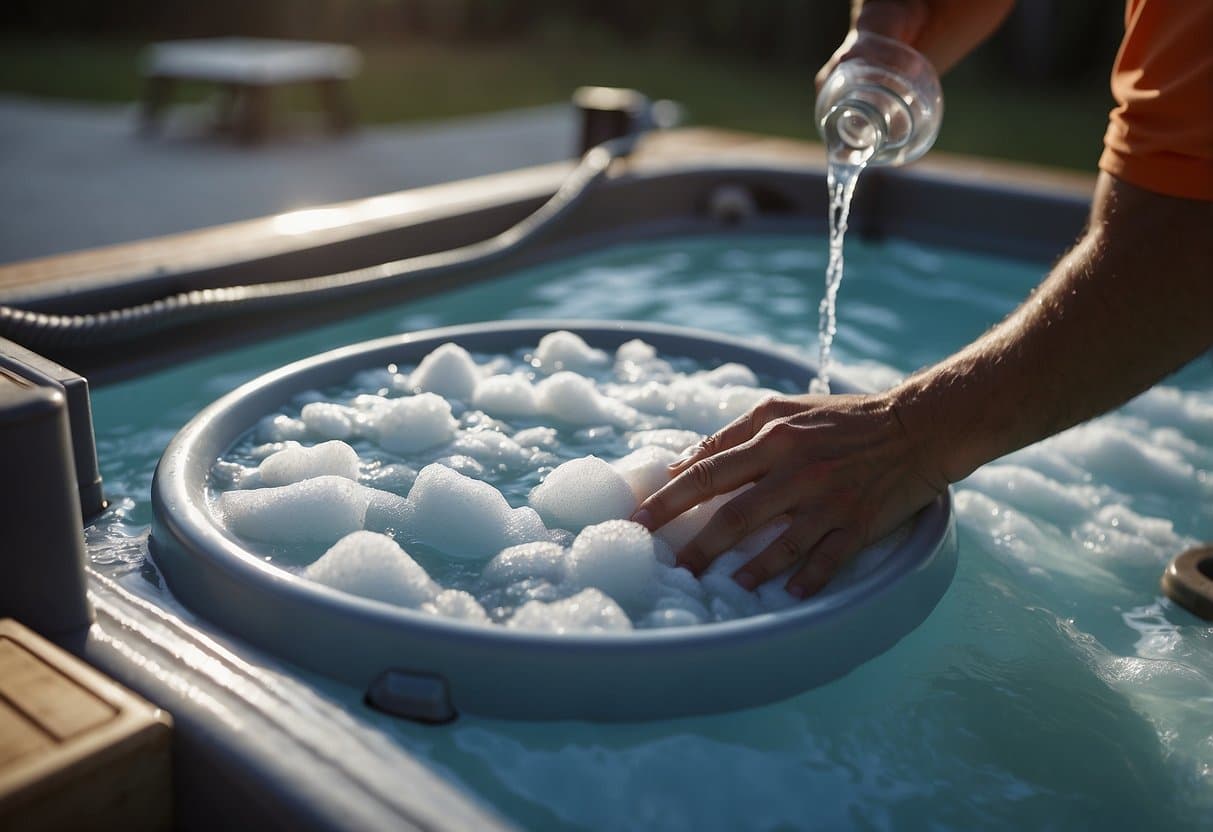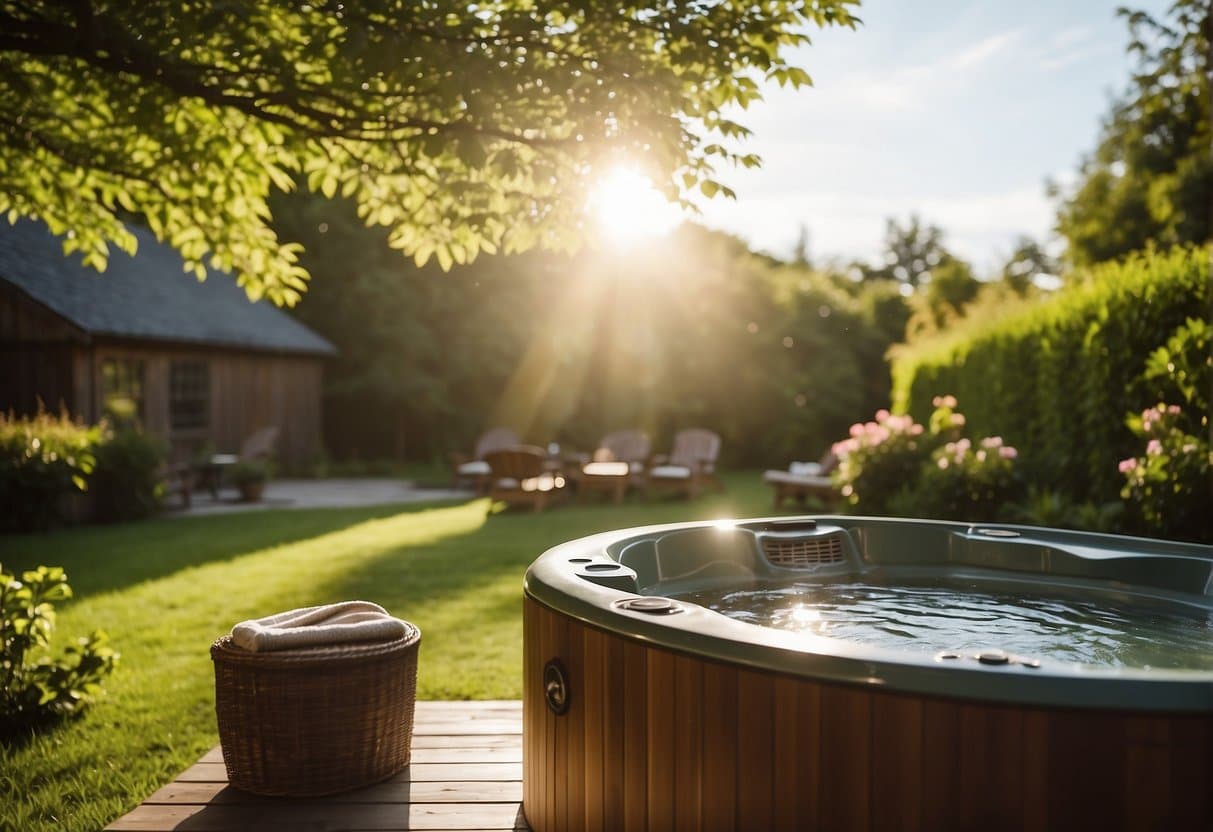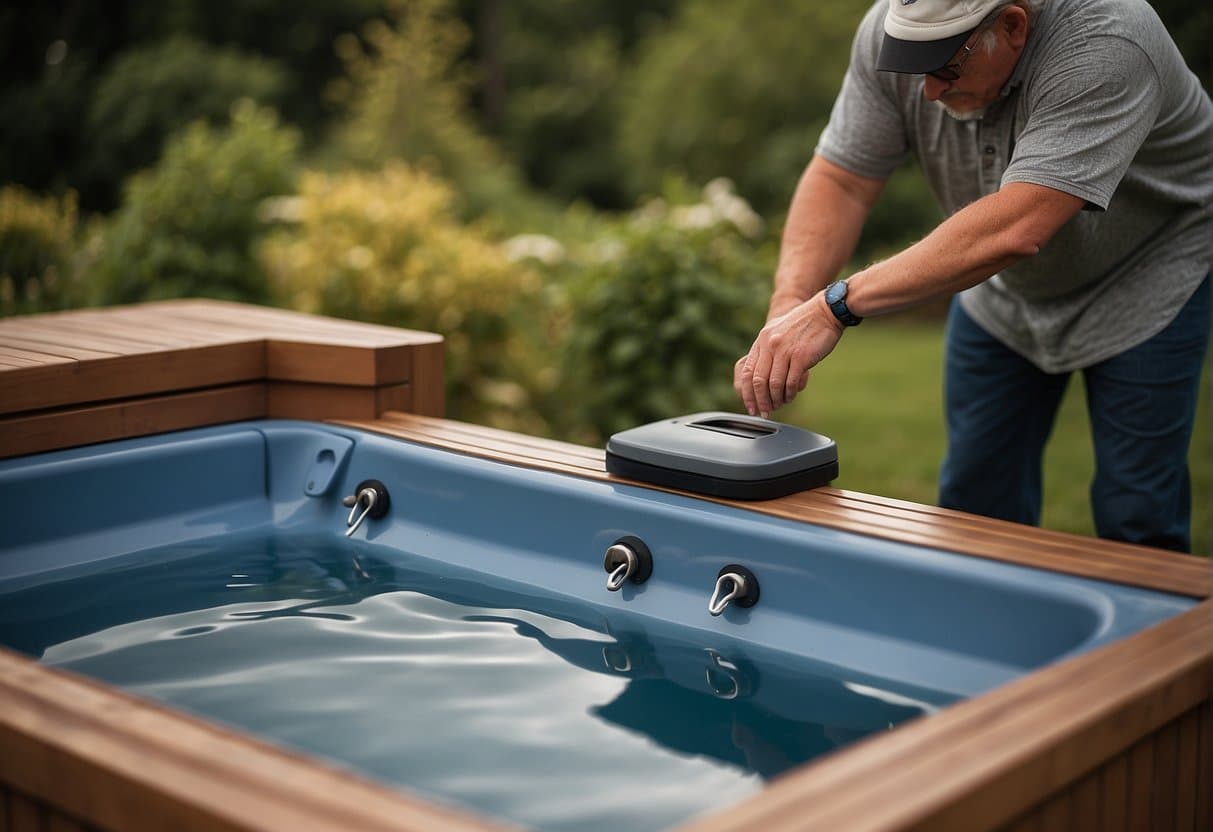Realtors debate the correlation between hot tubs and property values. This troubles some homeowners because the cost of a mid-range spa falls between $5,000 and $8,000. So, does a hot tub increase home value?
Thankfully, unlike swimming pools, hot tubs can appreciate or add value to a home to offset the upfront investment!
In many cases, swimming pools can detract from the value of a home for many reasons. Loss of yard, cost of maintenance, and the potential threat to children are a few reasons that push against the value.
But hot tubs do not come with the same concerns.
Their lockable lids and small square footage make them a safer investment. Instead, their value rests on installation and condition as to whether any enclosures have been built around it.
Permanency
Entry-level hot tubs are often portable. They are easy to move and come with fewer amenities.
Portable hot tubs add no value, as prospective buyers assume the current homeowners will keep them. In the least, they become an optional addition to the home—a poor bargaining chip.
However, built-in hot tubs are a luxury and can increase value in the right market.
On the wrong market, the value will hinge on the cost of removal.
While some people cherish their spas, others may envision a different backyard retreat. Therefore, the cost to de-install must lean against the potential positive value.
Related reading: Can I put a hot tub in my house?
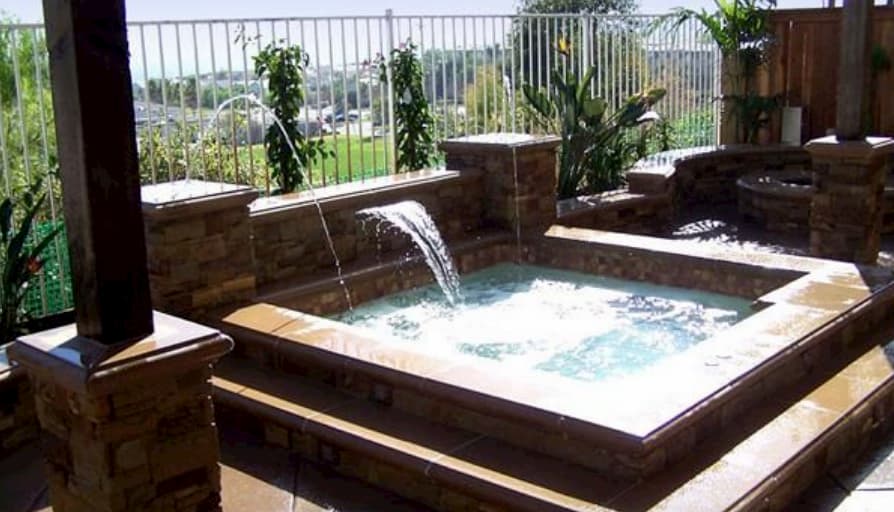
Condition
Understandably, a worn or damaged hot tub is less appealing than a brand-new one. Homeowners looking to increase value might want to refurbish the exterior and rework the area around it. The cleanliness of the interior, too, plays a major role. While hot tubs can be cleaned, a prospect may find the idea unhygienic if improperly kept.
The landscape around the spa influences its effect. Those installed into decks, surrounded by a green haven are captivating. A single spa out in the middle of the yard fails to impress in much the same way. Consider the environment when assessing the condition of a spa.
Location
In-ground pools suit warmer climates. After all, something of that size and cost should be useable for most of the year. Hot tubs, on the other hand, cater to a broader climate. Hot destinations tend to cool at night, while chilly ones need a warm escape. The market demand for hot tub properties will dictate the value it brings.
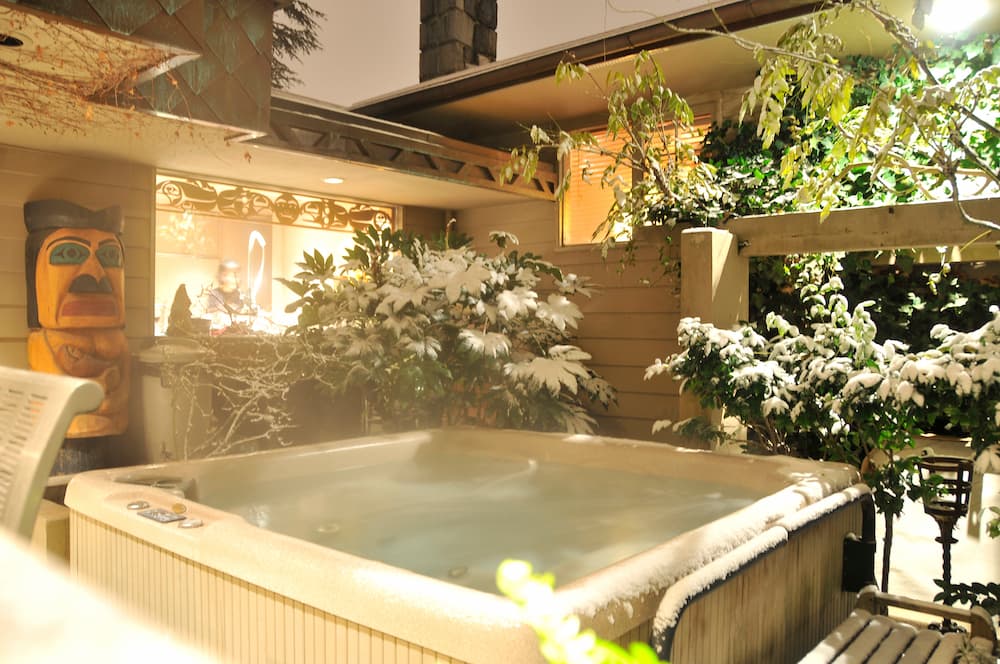
Where is the best place for a new hot tub?
Homeowners can install spas either indoors or outdoors. That said, putting a tub inside the house takes substantial preparation. Not every house can accommodate a spa without a few renovations.
Yet, finding the best spot on your property for a tub also requires planning. Here are some considerations that will help you discover the ideal place for your spa.
Close to the Home and a Power Supply
In the deep cold of winter, you’ll want your tub no more than a few paces from the door. Apart from convenience, keeping the spa near your home also ensures an easy electric installation. Nevertheless, always hire a licensed electrician to connect your tub to the power supply.
Around the deck or on a concrete foundation
Hot tubs require flat, sturdy foundations. At the least, you should construct a 4-ft cement base or a deck capable of supporting 150 lbs per square foot. Many homeowners like to design spaces around their new spas, so consider your long-term plans and how the spa fits in. Although possible, relocating a hot tub is laborious and expensive.
Away from nosy neighbours
Privacy makes a hot tub more restful. Consider how fences, trees, and other shrubby impede the view into your yard. Many homeowners like to build gazebos on top of their tubs for greater privacy. Whatever strategy you choose, create a backdoor haven for the best spa experience!
Accessible by movers
Hot tubs come in a few pieces—they are bulky and awkward to maneuver. For this reason, consider how easily you can move a hot tub into the location of your choosing. Many homeowners find it easier to build around their new spas and avoid clutter around the installation area.

